Moreau Kusunoki and Frida Escobedo set to renovate Centre Pompidou Paris
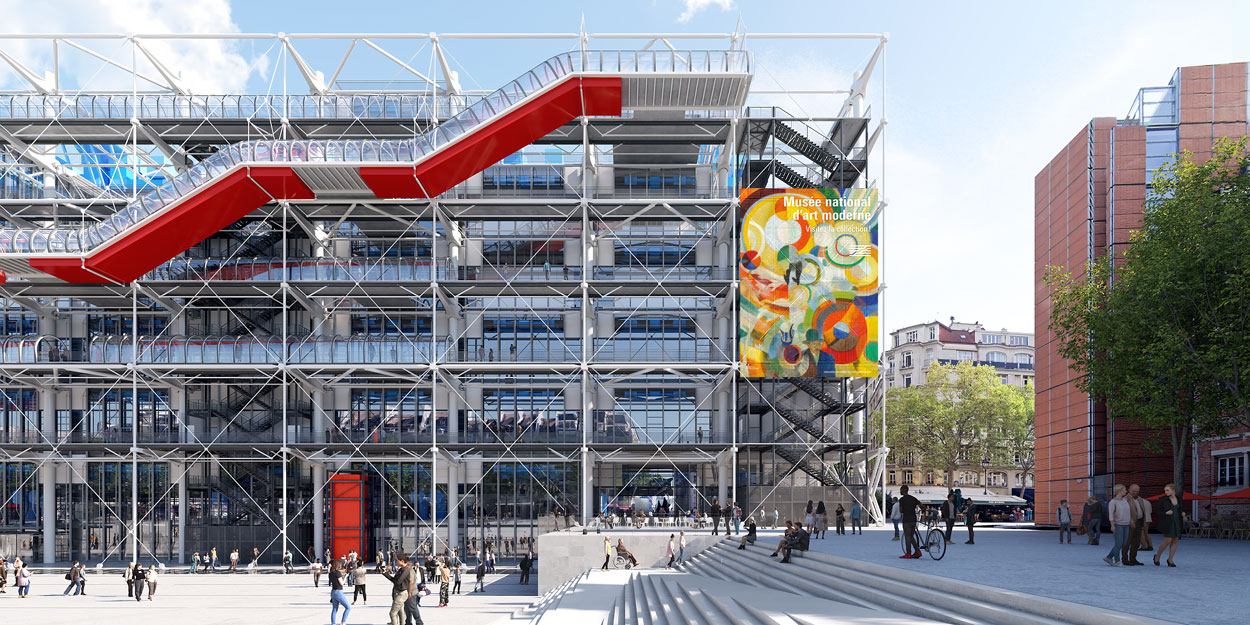
The Centre Pompidou has unveiled that Moreau Kusunoki in collaboration with Frida Escobedo Studio and AIA have won the architectural competition to complete its renovation set for completion in 2030. The DNA of the iconic Parisian structure designed by Renzo Piano and Richard Rogers will be preserved, with an eco-responsible approach that will revitalize the complex for contemporary use over the course of five years.
For the architects, four core guidelines structure the conceptual approach aligned with the Centre’s founding principles: creating physical and visual porosities across the site, ensuring fluid evidence of routes, activating and requalifying spaces, and respecting the existing context.
A fundamental point of welcome for the Centre Pompidou, the Piazza anchors its relationship with the city. Lead architects Paris-based Moreau Kusunoki will work alongside Mexican architect Frida Escobedo to increase the centre’s use by ensuring complete integration into the urban fabric, fluid and accessible to all, energizing underutilized areas on both sides. Accentuating this natural scene, the renovation intends to encourage spontaneous expressions of urban countercultures, inviting performers, dancers, street artists, and poets to utilize the space in direct connection with what the Centre Pompidou represented in its early 1970s.
Atelier Brancusi will be rehabilitated to host the research and resource centre of the Centre Pompidou. A restructuring of the floor levels will enhance visual and physical porosities by providing a new main street-level access, a ramp accessing work spaces on level with the garden, and an additional lower level of offices. The garden will extend northeast on the location of the old staircase while the south facade will open on the Piazza by a curtain wall system.
Inside the Forum, the zone that sparks all routes through the Centre Pompidou, Moreau Kusunoki and Frida Escobedo seek to maintain its organic and fluid character while promoting a clear, intuitive, immediate orientation. A new volume spans across three levels, creating greater space and inviting social exchanges with seamless, theatrical elements that can host organized or spontaneous events, as well as individual break moments. The visitor reception functions are all grouped and placed near the main entrance, while visual obstacles are removed to enhance porosity with the city and embrace natural light.
The Agora, largely enlarged under the Piazza, will bring together the concert halls, conferences and rehearsals, and two cinemas. A free area in their centre can be activated to become an ephemeral Home, hosting four versatile ‘boxes’. Of various forms and able to interconnect via moveable partitions, they offer possibilities for different configurations depending on the programming, from exhibition and installations to live shows.
The New Generation Pole will be an intergenerational space dedicated to artistic practice and recreation, split across two levels united by a winding double-height staircase. The space is characterized by transparency and flexibility, which can be modulated by all. The level below creates a zone where young children can explore freely, complemented with a slightly raised library, and two circles carved into the ground for a calm gathering space.
Moreau Kusunoki and Frida Escobedo envision the Public Information Library beyond with a playful architectural approach that seeks to inspire a joyful and contemporary appropriation of spaces for users with multiple profiles. The reception, accessible directly from the caterpillar on the second level, is conceived as another Forum — a flexible space dialoguing with the social and urban nature of the library. Deep perspectives can be seen through the exhibition room from the entrance and the transparent eastern facade. The library’s collections thus integrate and dialogue in this seamless interior-exterior landscape.
Additionally, as a counterpoint to its linear and directional organization, a series of small modules invite gathering and exchange. Designed to be autonomous or assembled together, these modules can accommodate different exhibition, consultation or information devices, as well as benches, tables, shelves… On level 2, animated, the distribution of islands is rich and varied; at level 3, quieter, it is more regular, more focused on the individual experience.
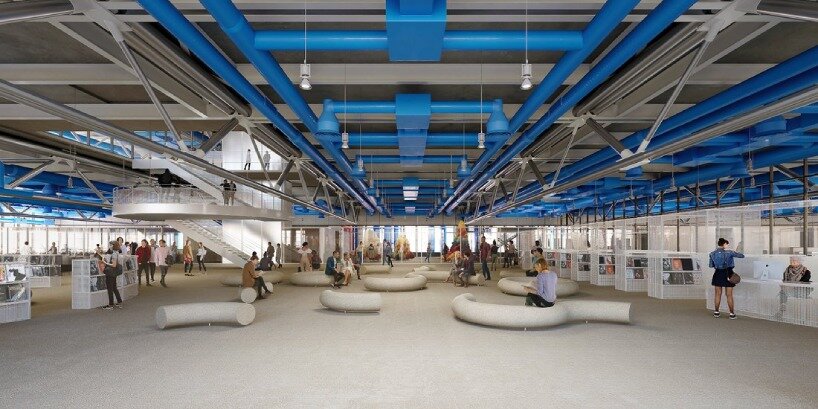 the structure’s iconic DNA is preserved and embraced
the structure’s iconic DNA is preserved and embraced
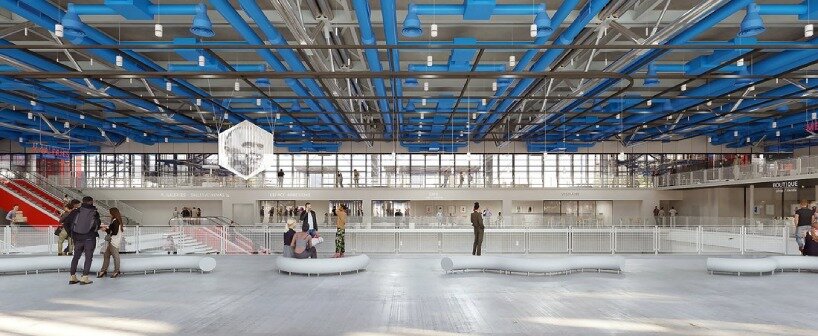 open spaces create physical and visual porosities
open spaces create physical and visual porosities
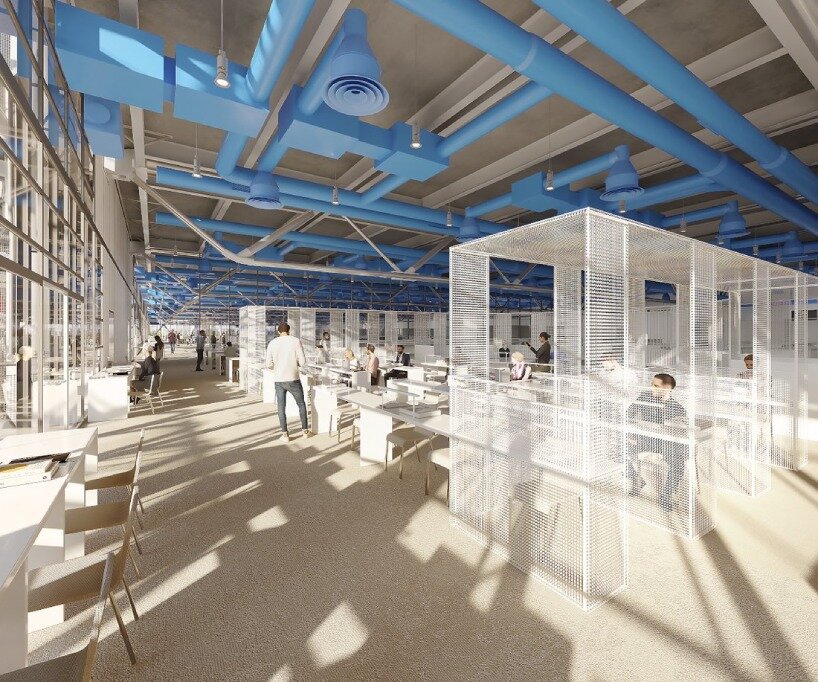 the Public Information Library
the Public Information Library
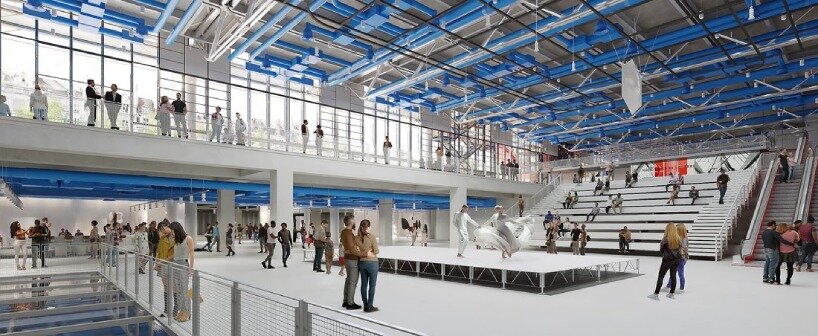 the Forum and the Agora span across three levels, creating spaces for social exchange
the Forum and the Agora span across three levels, creating spaces for social exchange
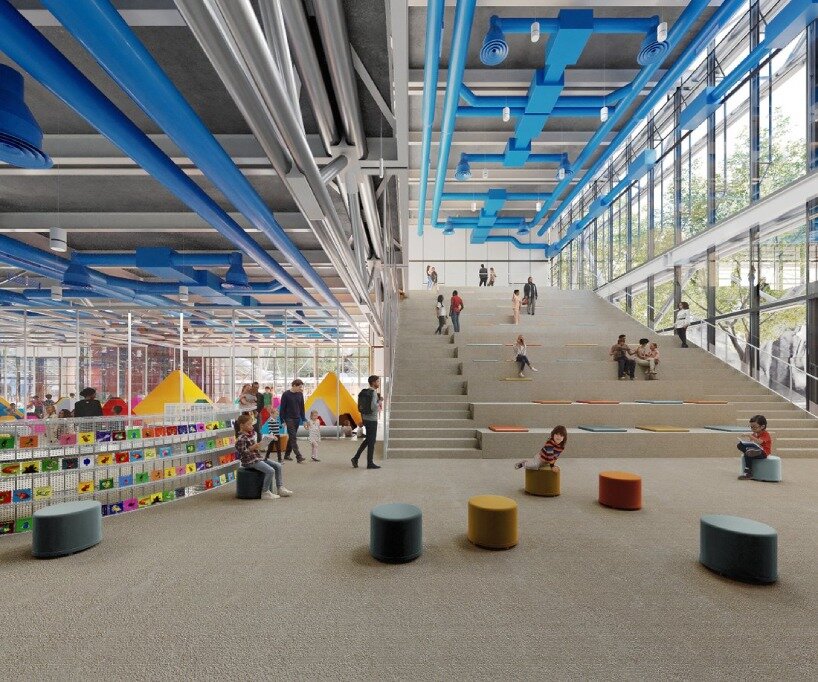 the New Generation Pole will be dedicated to artistic practice and recreation
the New Generation Pole will be dedicated to artistic practice and recreation
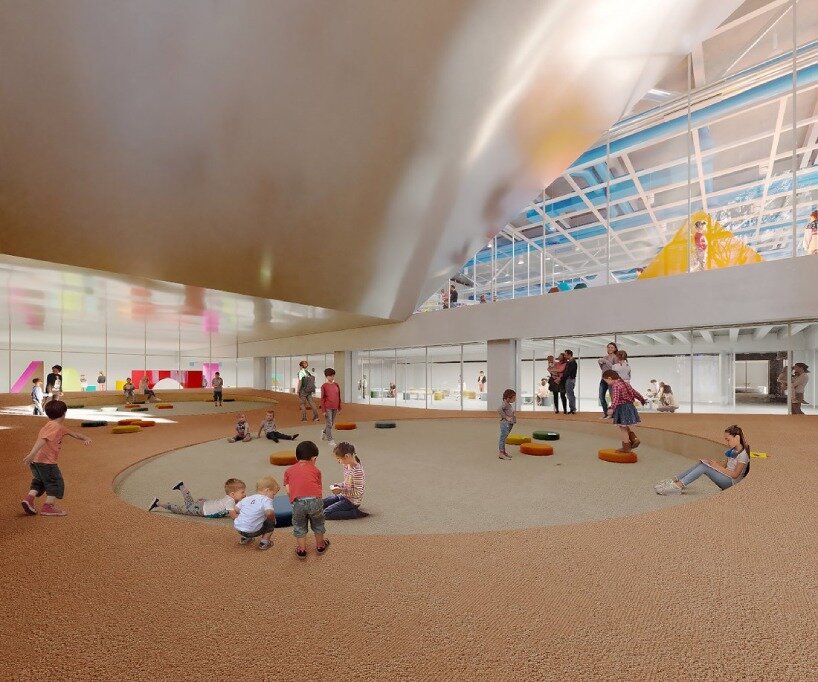 two circles carved into the ground for a calm gathering space
two circles carved into the ground for a calm gathering space
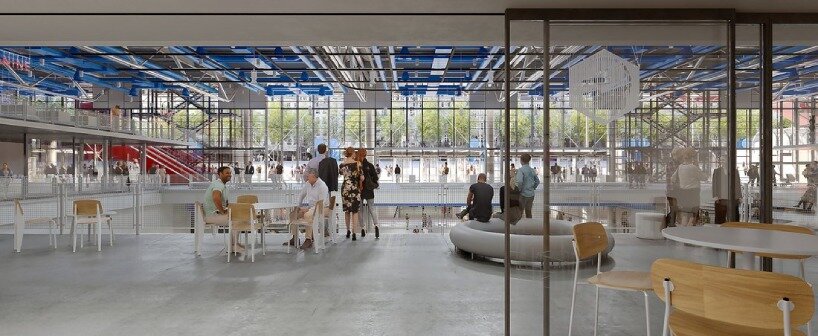 the bookstore, shop, and restaurant
the bookstore, shop, and restaurant
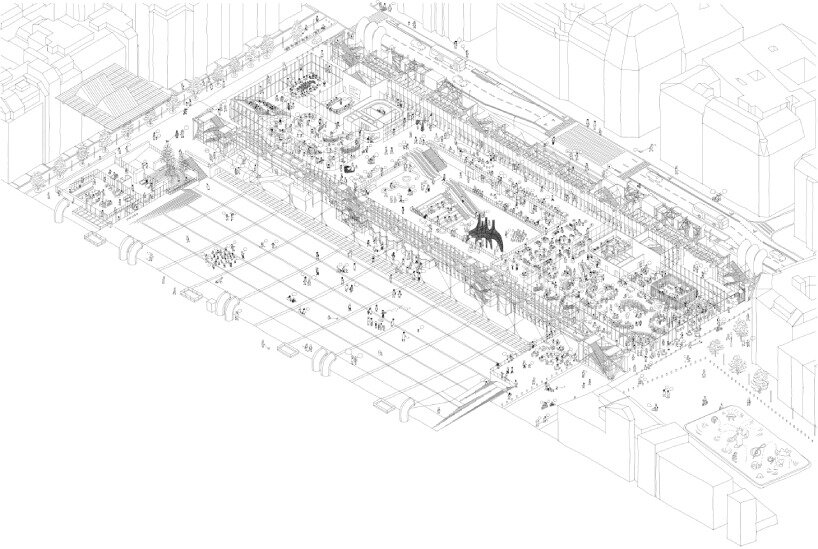 drawing © Moreau Kusunoki
drawing © Moreau Kusunoki
All Images: © Moreau Kusunoki in association with Frida Escobedo Studio
